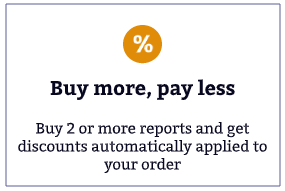Description
Online sales are allowed in the Philippines, provided that age-verification mechanisms are in place and businesses are previously registered with authorities.
Unlike most markets, the Philippines requires combined health warnings on product packaging.
Some changes are expected for 2024, including certification, product registration and tax stamps. Tax increases and heavy enforcement on compliance with the new vaping regulations are expected.
This report offers an overview of the current regulatory framework for e-cigs and related products in the Philippines, covering all policy areas from taxation, notification and labelling to advertising, product restrictions and public usage.
 Reasons to buy
Reasons to buy
An ECigIntelligence regulatory report will provide you with:
- A clear and detailed understanding of current regulatory requirements affecting this sector in a specific jurisdiction, enabling you to be confident your business and your products are compliant.
- The ability to plan ahead for specific regulatory changes.
- Strategic understanding of the policy climate within the jurisdiction, enabling you to forecast how it might affect business development.
- Sources of further information, for example links to full texts of legislation and contact details for relevant government offices.
 Table of contents
Table of contents
- Executive summary
- Outlook
- Philippines: the basics
- National regulatory framework
- Age restrictions
- Product restrictions
- Labelling and packaging
- Obligation to notify
- Retail channel restrictions
- Public usage
- Advertising and marketing
- Taxation
- Sanctions
- Relevant laws
- Relevant bodies
 Methodology
Methodology
Our research is completely independent and original. It is conducted by ECigIntelligence’s multilingual legal analysis team, all specialists in this sector, and goes through a rigorous review and editing process before publication. Research draws on multiple sources, including: online and offline resources and data, specialist legal software, our own extensive databases and report archives, interviews with key stakeholders and government officials, and collaboration with local legal firms and on-the-ground professionals in the jurisdictions covered.




